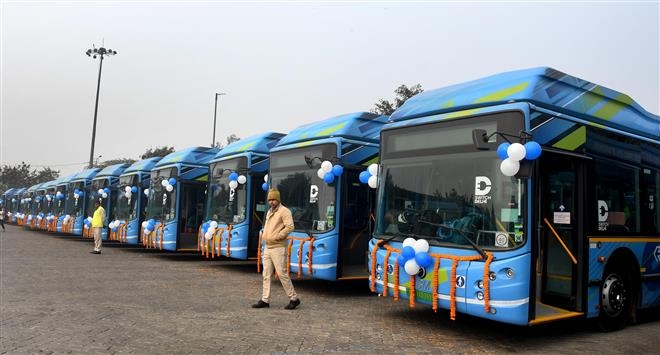NB Explains | Will PM eBus Sewa be able to boost mobility in urban India?
Total Views |
New Delhi, Aug 19: With the aim of augmentation of city bus operations with 10,000 e-buses on the PPP model, the Union Cabinet on August 16 approved a bus scheme “PM-eBus Sewa” for augmenting city bus operation.

The scheme will generate 45,000 to 55,000 direct jobs through deployment of around 10,000 buses in city bus operation.
There are two segments of the scheme: Augmenting the city bus services and Green Urban Mobility initiatives.
Under the augmentation segment, the e-buses will operate under the PPP model and the government will help develop associated infrastructure to provide support for development/upgradation of depot infrastructure. It will also help cities create behind-the-meter power infrastructure for the e-buses.
Under the Green Urban Mobility Initiatives, bus rapid transport projects would be developed along with non-motorised infrastructure like bike sharing, bicycle lanes. Innovative projects like National Common Mobility Card, Intelligent Transit Management System, Multimodal Interchange facilities would also be developed.

The scheme would have an estimated cost of Rs 57,613 crore, out of which support of Rs 20,000 crore will be provided by the Central government. The Scheme will support bus operations for 10 years.
Reaching the Unreached-
The scheme is aiming to cover cities of 3 lakh and above population as per census 2011 including all the Capital cities of Union Territories, North Eastern Region and Hill States. Under this scheme priority will be given to cities having no organized bus service.
Direct Employment Generation-
The scheme will generate 45,000 to 55,000 direct jobs through deployment of around 10,000 buses in city bus operation.
Two segments
Under the augmentation segment, the e-buses will operate under the PPP model and the government will help develop associated infrastructure to provide support for development/upgradation of depot infrastructure. It will also help cities create behind-the-meter power infrastructure for the e-buses.
Boost to E-Mobility-
- The scheme will promote e-mobility and provide full support for behind-the-meter power infrastructure.
- Cities will also be supported for development of charging infrastructure under Green Urban Mobility Initiatives.
- The support to bus priority infrastructure shall not only accelerate the proliferation of state-of-the-art, energy efficient electric buses but also foster the innovation in the e-mobility sector as well as development of resilient supply chain for electric vehicles.
- This scheme shall also bring in economies of scale for procurement of electric buses through aggregation for e-buses.
- Adoption to Electric mobility will reduce noise and air pollution and curb carbon emission.
- Modal shift due to increased share of bus-based public transportation will lead to GHG reduction.